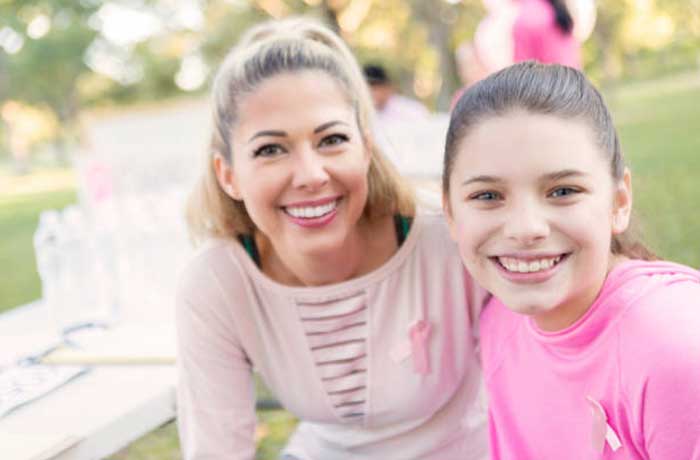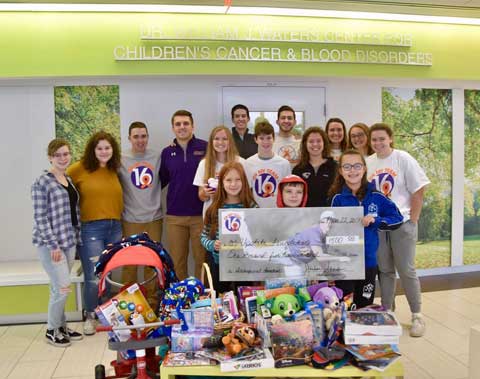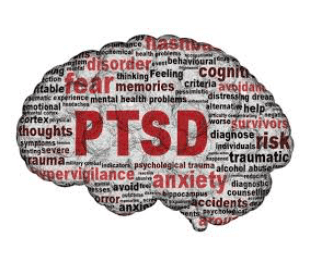Introduction:
In a country with first class medical care, it is hard to believe that cancer has not yet been beat. While the incidence of cancer for adults has been on a steady decline, the same cannot be said for pediatric cancers. Approximately 1 out of 285 children in the US will be diagnosed with cancer before they reach the age of 20 years old. This means that an estimated 10, 450 children are diagnosed with cancer each year in the United States alone.
The shiny, bald head and tired eyes are evidence that chemotherapy takes its toll on a child fighting cancer. Doctors, nurses and health care providers fight diligently with a child to beat the battle with cancer. While the physical aspect of cancer is in the forefront of health care providers’ minds, the psychological impact cancer can have on children often takes the backseat. Thousands of children each year suffer through chemotherapy treatments, losing their hair and, quite possibly, their identity. As a child’s life changes drastically with the cancer treatments taking up a huge part of their life, children can become depressed or anxious and incur developmental problems as a result. The psychological impact of cancer on a child is in the earliest stages of research, but programs, such as those that provide strong support groups, can begin to help children with cancer combat the negative impact cancer can have on their mental health.
It is imperative that programs be implemented to improve the quality of life of cancer patients to maintain a positive outlook on their diagnosis, which will only strengthen their battle against cancer. Programs such as On My Team are essential to enrich the lives of children with cancer so that they can reap the benefits of an improved mental health.
The psychological impact on children diagnosed with cancer:
While a child’s cognitive development dictates how well he or she will understand a cancer diagnosis, it is crucial that every effort be made to ensure that a child understands that his or her mental health is just as important as physical health. The psychological impact of a cancer diagnosis on children may not manifest itself until it has poorly impacted a child’s mental heath. A child may develop depression, anxiety or become overly concerned with death as a result of a cancer diagnosis (McCaffrey CN). A child who is too young to fully understand their diagnosis or death but still understands that they are sick, can still be affected by depression and anxiety. Significantly higher rates of depression are found in children with cancer compared to healthy, similar aged children (Cavuşoğlu H). Although this may be expected, poor outlooks on a diagnosis can impair recovery and result in lower rates of survival (Linden W et al).
As depression and anxiety can be difficult for health care providers to identify, organizations similar to On My Team can provide children with an open environment to discuss their struggles and reach out for help from children and families in similar situations.
Treatment options for dealing with psychological impact of a cancer diagnosis:
Treatment options for pediatric oncology patients suffering from depression or anxiety are sometimes limited. Children who already spend significant amounts of time surrounded by health care providers would not want to spend even more time there seeking therapy for mental health struggles. However, psychiatric therapy is not the only option for children struggling with mental health after a cancer diagnosis. Play therapy has been shown to help children cope with the impact of cancer on their lives and discuss their struggles with other children in a more comfortable environment (Trask et al). Play therapy is helpful for children as they can display how they feel about their diagnosis and treatment through the use of toys. However, the more social support a child or young adult felt that they had, the lower their psychological distress was (Varni et al). This shows the importance of a strong social support group, such as those provided by organizations like On My Team.
The psychological impact on the family of a child diagnosed with cancer:
Only a parent can understand the psychological stress that comes with having to see their child suffer through a battle with cancer. Not only do parents have to watch their child suffer through painful treatments, they have to handle daily responsibilities and, often times, care for siblings, as well. Nearly 1 out of 7 parents of children with cancer reported having severe psychological distress (Rosenburg et al). When a child relapses, the psychological stress on parents is amplified. Parents of children who relapsed had much higher levels of distress compared to parents of children who did not relapse, some even experiencing symptoms similar to Post Traumatic Stress Disorder (Hinds et al., Penkman et al). When children relapse after treatment, their parents have higher levels of distress than the parents of children who remain cancer- free. While this may seem obvious, it is noteworthy as there are very little treatment options or care for parents in this situation. Support groups and organizations such as On My Team provide an environment for parents to discuss their concerns with other families in similar situations, making them feel less alone with their struggles.
On My Team attempts to alleviate struggles of children and families:
As social support has been shown to be an integral part of the recovery process for children diagnosed with cancer, On My Team will be able to have a positive contribution in the lives of children battling cancer. On My Team provides a strong social support group for both children and their families and allows them to discuss their concerns, anxieties and struggles with families going through similar situations.
Not only does On My Team provide an outlet for parents and children alike to express their concerns, it also gives children a goal outside of beating cancer. They become part of a bigger team that has goals of helping other children with their fight and of raising money to beat cancer once and for all. By becoming a part of a team, children can feel like they have a purpose and will motivate him or her to continue their fight and become stronger than they were before.
Conclusion:
The psychological impact that a cancer diagnosis can have on a child and their family is still in the early stages of research. However, that does not mean that we can’t take action now and develop organizations that provide a strong social support group. It is more than evident in countless studies that depression and anxiety can wreak havoc on a child battling cancer. By providing a fun, motivational atmosphere, On My Team is attempting to alleviate the negative psychological impact that cancer can have on a child and enhance their chances of remission.
On My Team will provide social support to parents of children battling cancer and relieve some of their struggles. Families will not have to feel alone in their child’s battle with cancer.
Cavuşoğlu H. Depression in children with cancer. Journal of Pediatric Nursing. 2001 Oct;16(5):380–385
Hedström M, Kreuger A, Ljungman G, Nygren P, von Essen L. Accuracy of assessment of distress, anxiety, and depression by physicians and nurses in adolescents recently diagnosed with cancer. Pediatric Blood Cancer. 2006 Jun;46(7):773–779
( Hinds PS, Gattuso JS, Fletcher A., et al. Quality of Life as conveyed by pediatric patients with cancer. Quality of Life Research. 2004 May 13 (4): 761-722.)
Linden W, Vodermaier A, Mackenzie R, Greig D. Anxiety and depression after cancer diagnosis: prevalence rates by cancer type, gender, and age. Journal of Affective Disorders. 2012;141:343–351.
McCaffrey CN. Major Stressors and their effects on the well being of children with cancer. Journal of Pediatric Nursing. 2006; 21(1): 59-66
Penkman L, Scott-Lane L, Pelletier W. A Pscyhosocial program for pediatric oncology patients: a pilot study of the Beaded Journey. Journal of Pyschosocial Oncology. 2006; 24(2): 103-115
Rosenberg AR, Dussel V, Kang T, Geyer JR, Gerhardt CA, Deudtner C, Wolfe J. Psychological distress in parents of children with advanced cancer. Journal of the American Medical Association of Pediatrics. 2013;167(6):537–543.
Trask PC, Paterson AG, Trask CL, Bares CB., et al. Parent and Adolescent Adjustment to Pediatric Cancer: Associations with Coping, Social Support and Family Function. Journal of Pediatric Oncological Nursing. 2003; 20(1): 36-47
Varni JW, Katz ER, Colegrove R, Jr, et al. Family functioning predictors of adjustment in children with newly diagnosed cancer: a prospective analysis. Journal of Child Psychology and Psychiatry. 1996;37(3):321–328.






Leave A Comment